Inspiring kids with real live science in the great outdoors, has been the way for us to introduce practical and experimental science into our school this year. It is fun, it is rigorous and teaches them all the good things about doing experiments with the necessary care and correct documentation. Science experiments are always brilliant fun, our kids consider science to be just another extension of arts and crafts. This is true, a scientist does have to be filled with creative inspiration to ask interesting questions and to think of innovative ways to answer them. To this end we have been enjoying participating in Citizen Science for the while… it takes the level of doing science to a new level, when your results count and you have to take care with each and every step of the process.
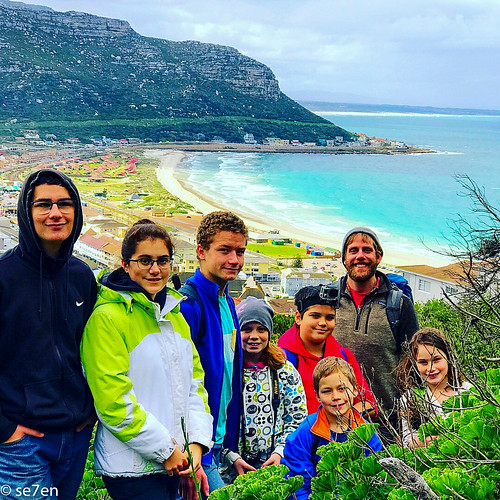
Location Location Location…

A while back we did a year long Nature Watch Project on Elsie’s Peak, and so when we had the chance to do a little bit of Citizen Science on Elsie’s Peak we were all very keen to head out and learn. Our task on the mountain side was to take a closer look at those plants around us that were dying and to see if we could figure out why there were dying. A number of things effect plants, including harsh environmental conditions, bird life animal life and so on… we were keen to figure out why some of the plants on our mountain were in fact dying.
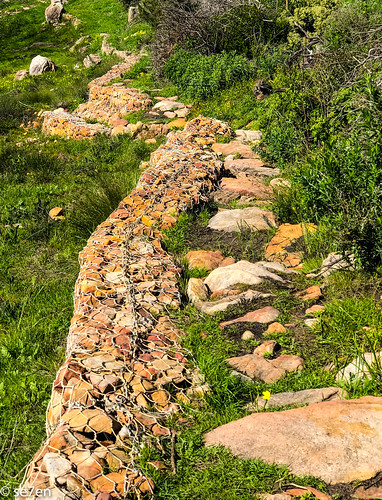
There are a fair amount of steps involved in getting up our mountain, and so you really have to want to do this kind of science. A big advantage is that we do have a lot of dead and dying plants that we hadn’t noticed before. After years of looking out for living plants and dashing up the mountain to draw and observe the local fynbos you do have to train your eye a little bit, to notice the plants that are struggling. That being said, once you spot them you can’t help yourself and so begins the wondering… what happened to that plant, and that one, and that one?
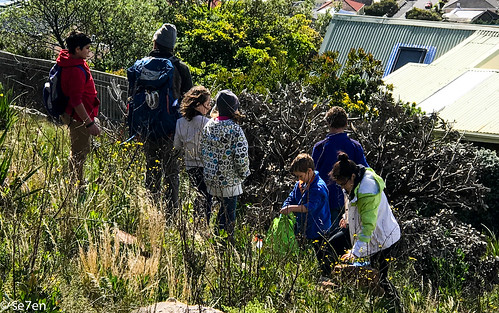
Is it something attacking the routes, are their bugs on the plants, is there fungus? Lots of questions…
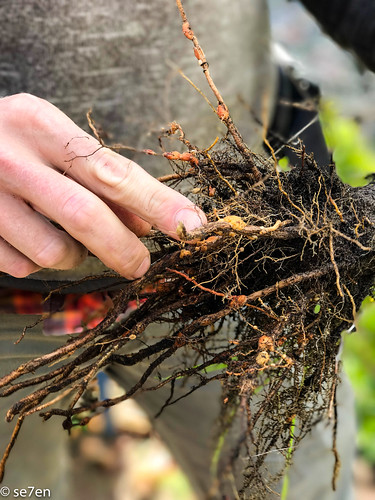
And time for some real science to see if we can find any answers…
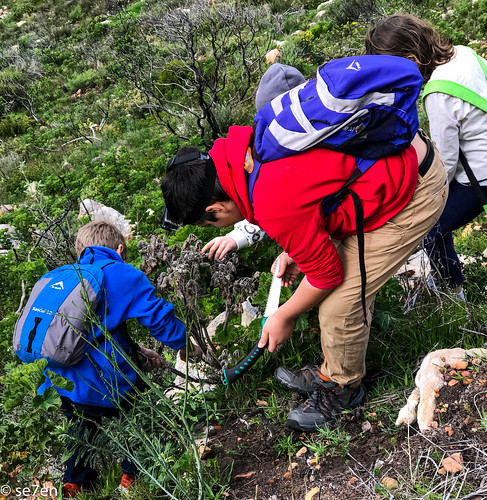
It is All About the Gear
Turns out scientists use a lot of gear, for accurate data collection you need to be able to collect samples carefully and accurately document your discoveries. You never know when your next discovery is going to be a huge one and carful recordings make for valuable and useful science.
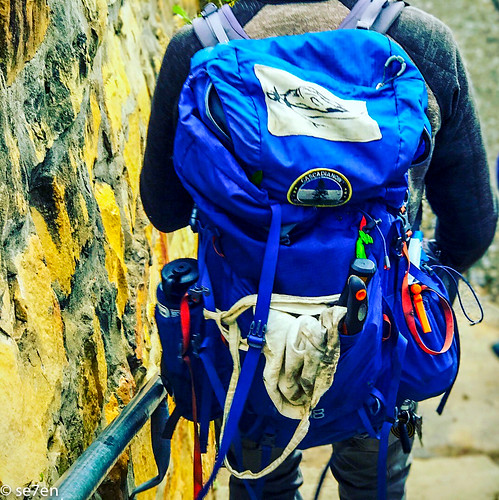
We needed to record your location with a gps…
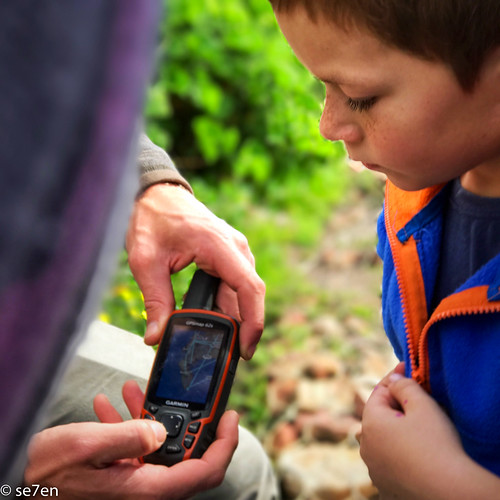
Document discoveries with a camera at first…
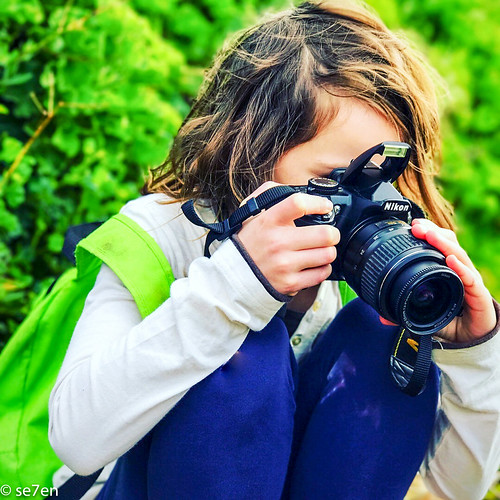
And oversee all your proceedings with a gopro…
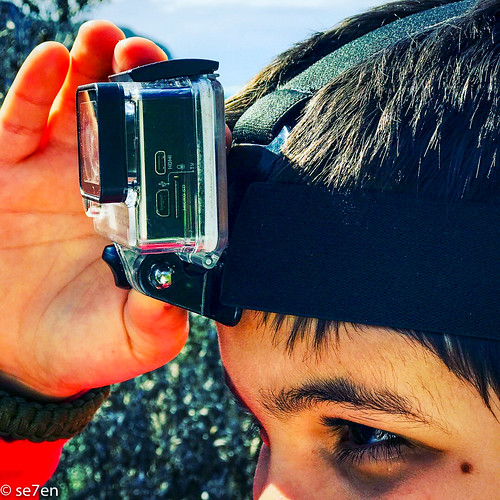
Because we are looking for plant disease and we are aware of pathogens that we might bring into the area, we have to be careful that we are not bringing new diseases into the area ourselves… and we have to be careful that all our tools and implements are clean between taking each sample collection as well.
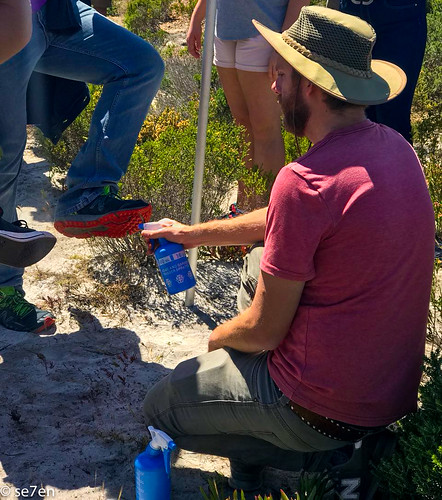
Sample Collection
Clean tools and equipment are critical as we mentioned before, to avoid contamination from other locations…
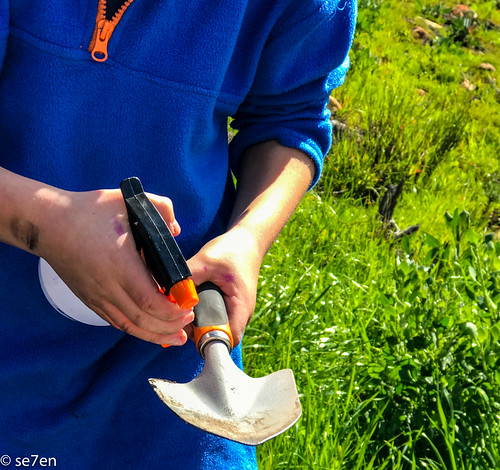
And collecting samples from as close to the roots of the dying plant as possible …
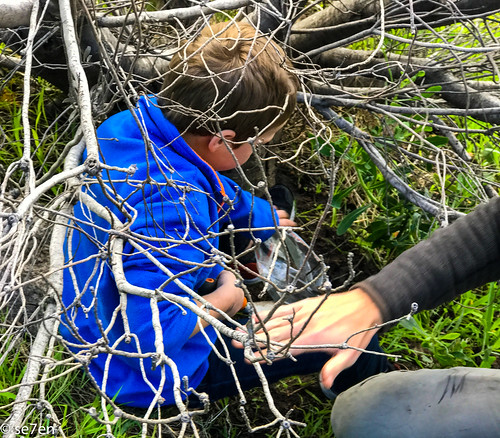
Each sample needs its own bag, with a label with its identifying name or number, as well as the accurate location and any special comments.
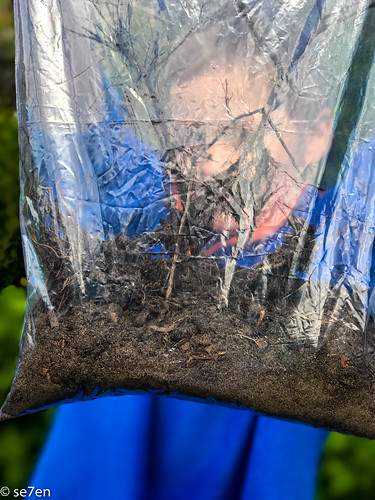
Laboratory Preparation
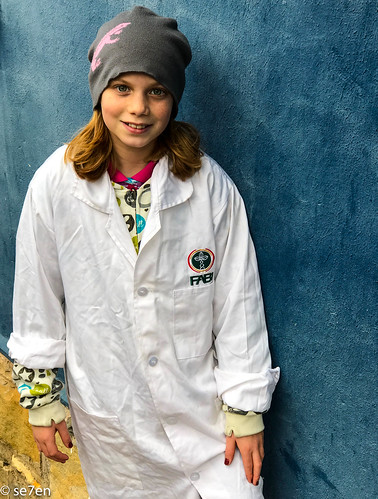
Once our samples were collected we headed home to prepare them for laboratory testing and analysis.
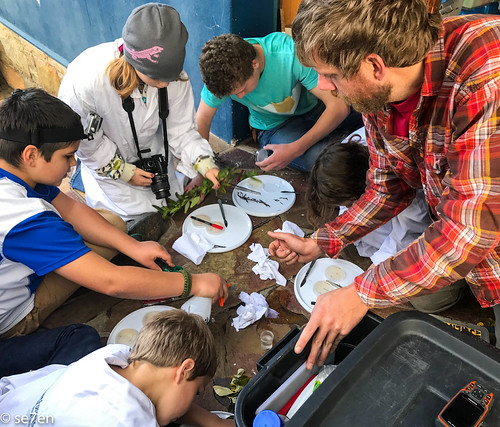
And of course photographing everything…
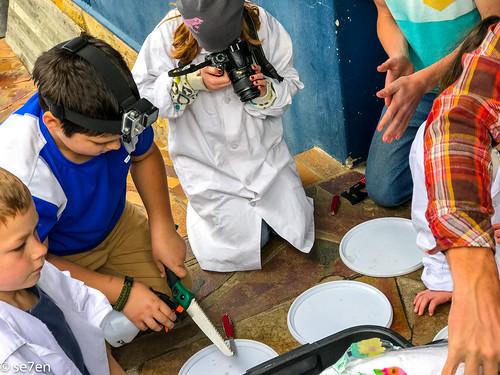
Everyone taking extra care with their samples…
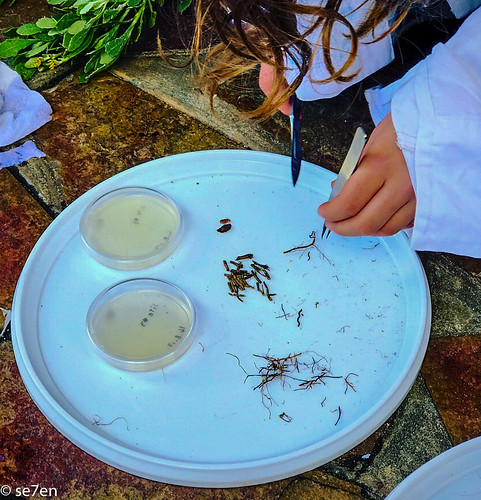
Tape them shut…
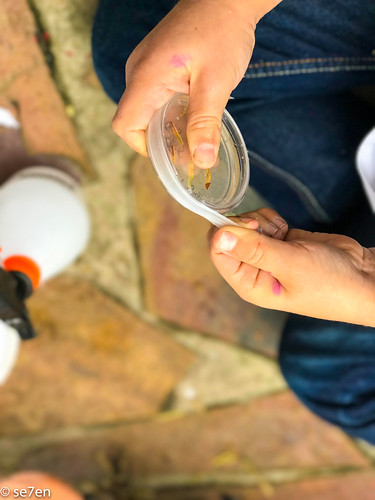
And label everything carefully…
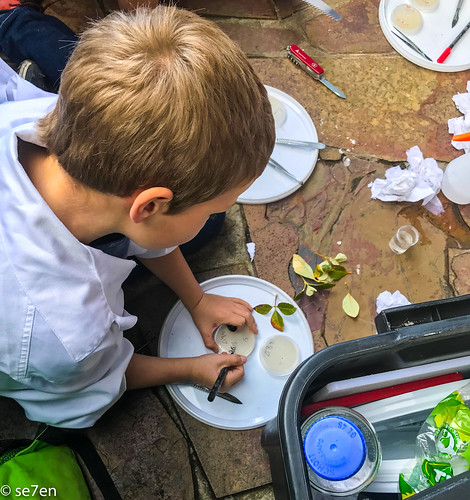
And our samples were good to go to the lab… where we met up with them a week or two later…
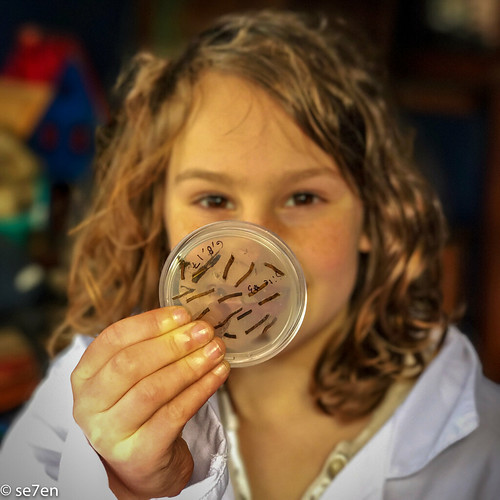
Off to the Laboratory
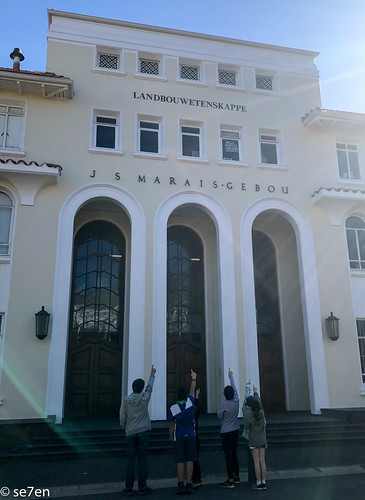
We took a trip out to Stellenbosch to meet our Citizen Scientist, Joey… who was there to show us around his lab and help us to process a whole lot of soil samples, including our own. We got to explore the lab…
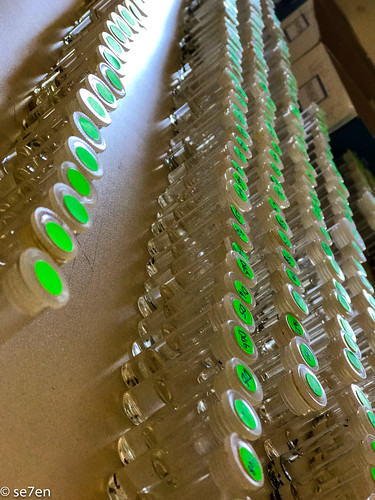
And a little classroom experience for our gang of homeschoolers…
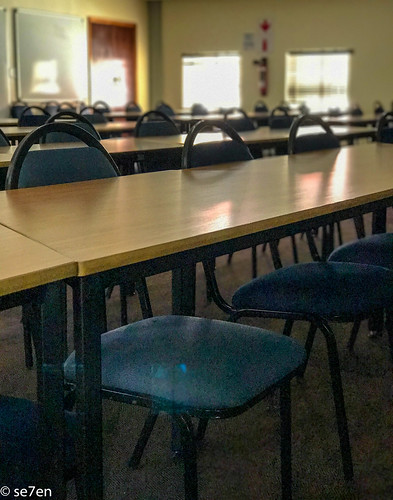
And a presentation…
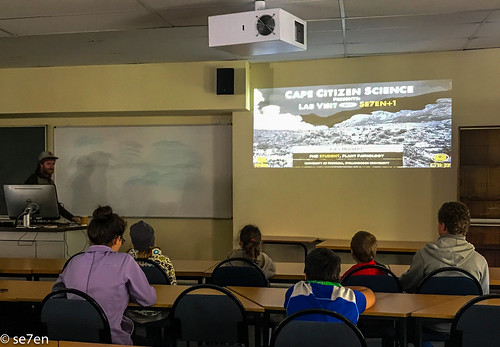
And learnt about the fynbos biome…
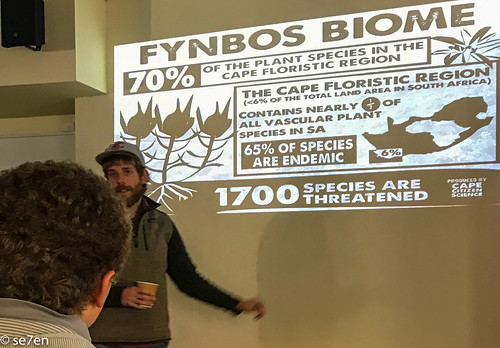
Into the Laboratory
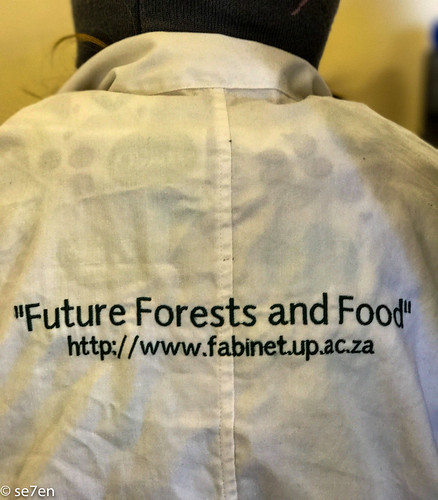
The plant disease we are looking for is phytophera, and that is a little microorganism that likes to swim…
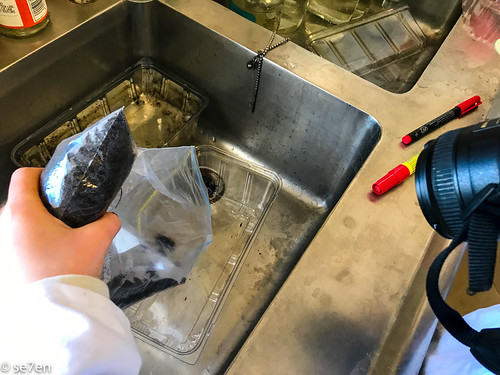
So our soil samples were placed in baths….
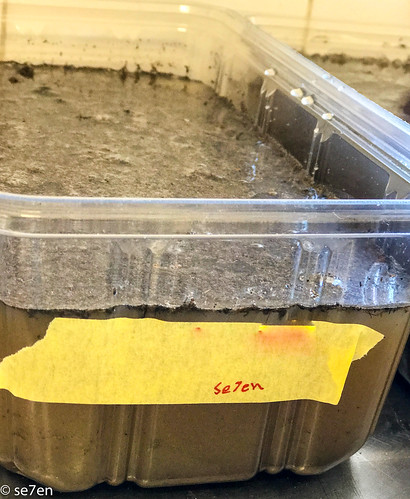
And then we took a look at some of our previous soil samples…
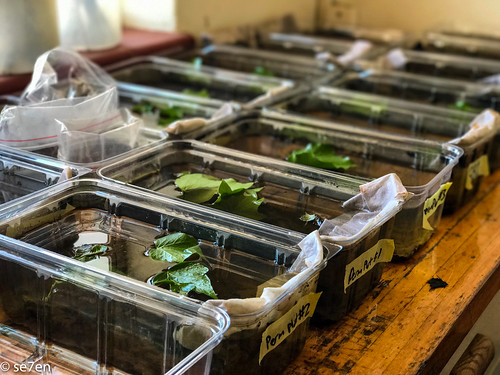
Which had healthy ivy leaves added to it…
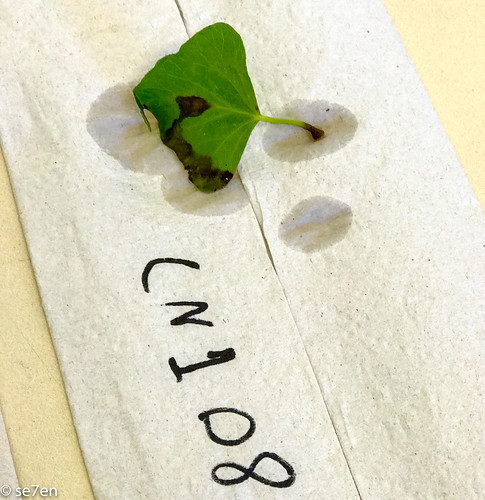
Where the ivy leaf was blackened, new samples were created, because this could essentially be an indicator of the disease we were after.
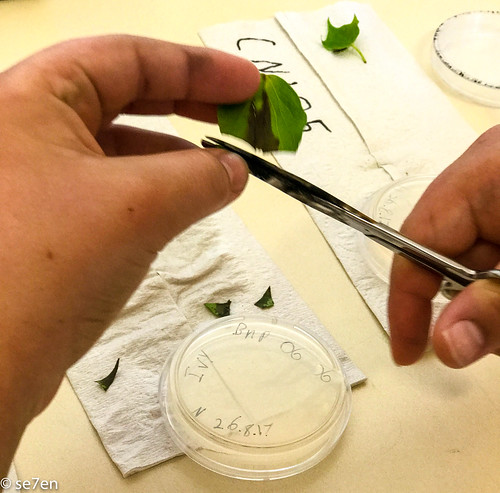
Everything was kept sterilised and clean, in order to prevent cross-contamination…
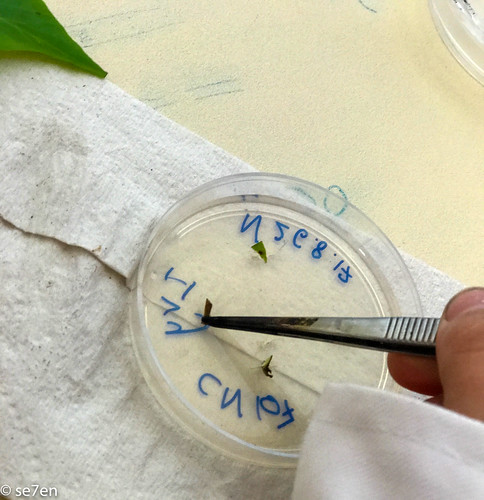
Everything documented…
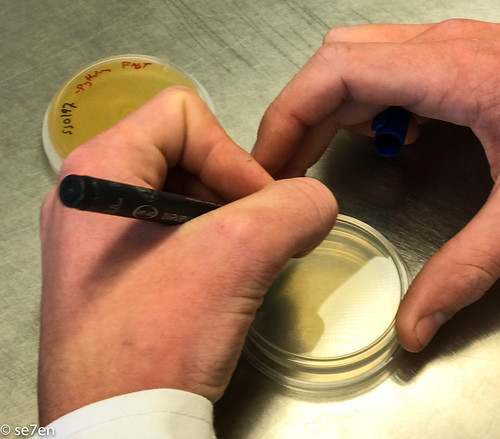
Everything photographed of course…
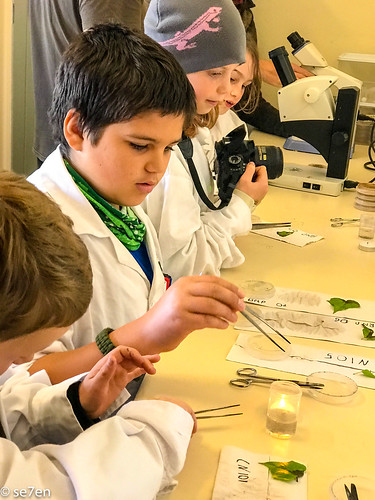
New petri-dishes created…
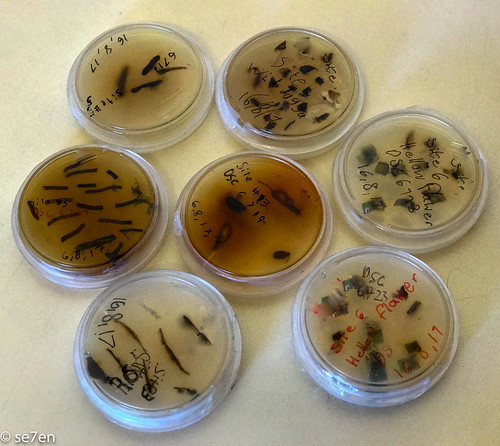
And lots of microscope work…
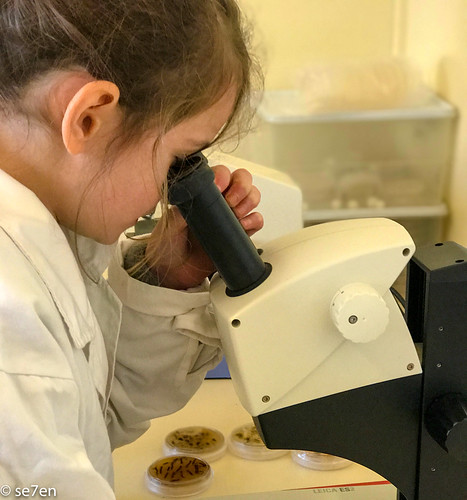
Because microscopes make everything more exciting…
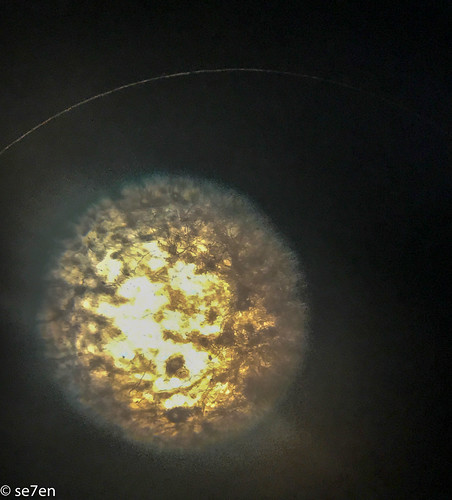
And a Whole Lot More Science
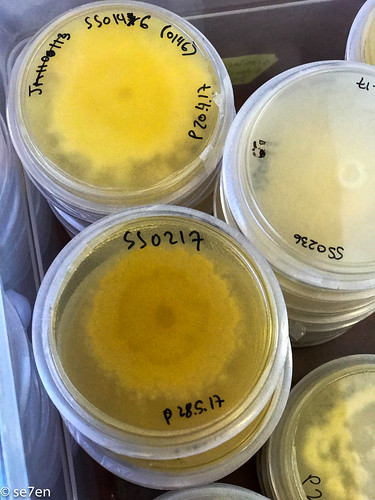
Because look how beautifully these things grow…
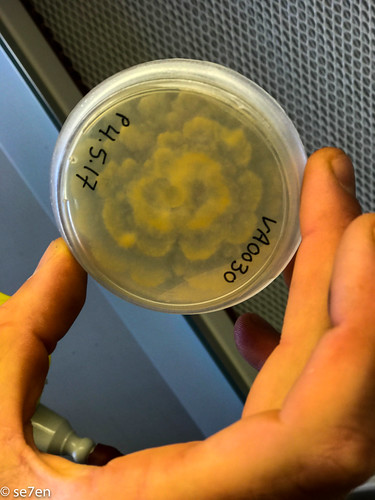
And creating new samples…
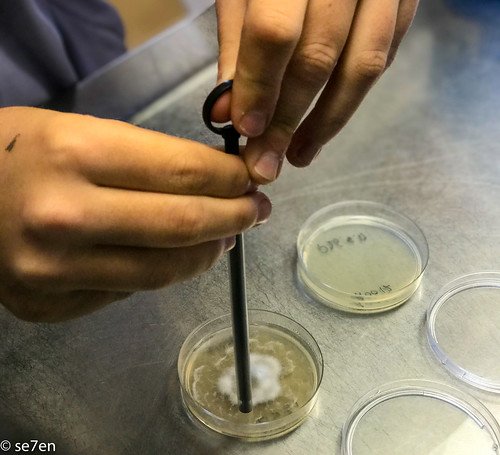
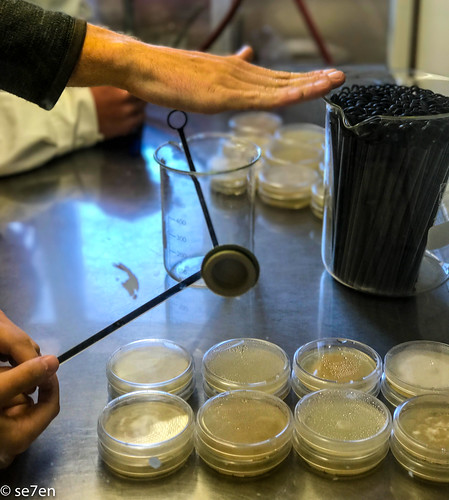
And there you go…
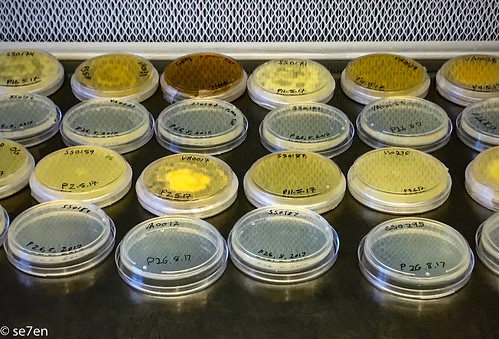
The Photo Gallery
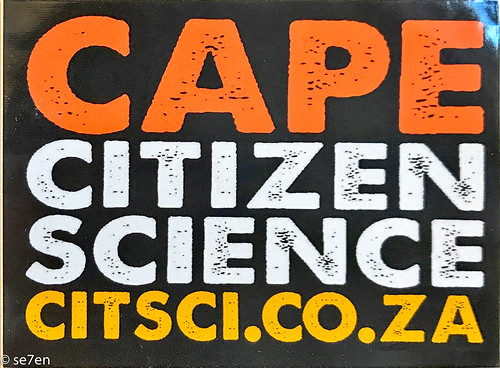
If you want to know more about Cape Citizen Science, and join their project then take a look at their website here.

oh my gosh! all your lab pics take me back to my youth 🙂
Hay Marcia, fun times… our kids loved this so much they wouldn’t have dreamed of calling it science… just pure fun all the way!!! Hope your little one feels better soon and you guys have a great week…